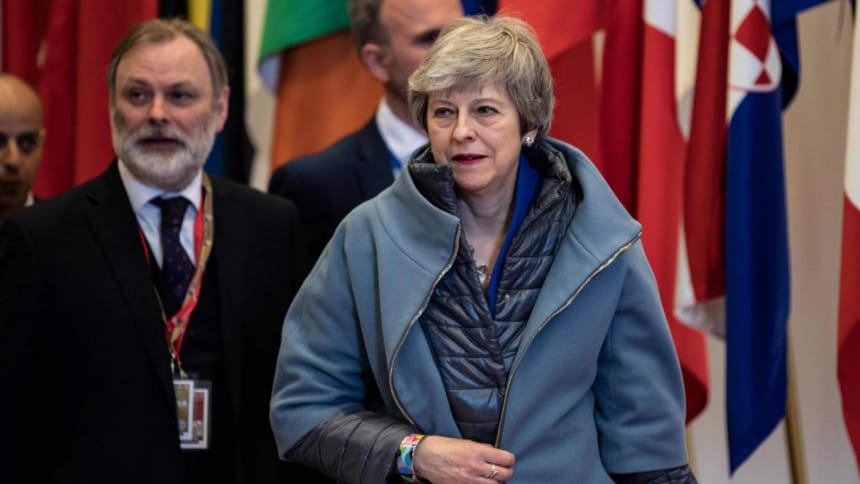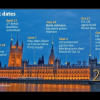Brexit delayed until Oct 31

European Union leaders gave Britain six more months to leave the bloc, more than Prime Minister Theresa May says she needs but less than many in the bloc wanted, thanks to fierce resistance from France.
The summit deal in Brussels in the early hours of yesterday meant Britain will not crash out today without a treaty to smooth its passage. But it offers little clarity on when, how or even if Brexit will happen, as May struggles to build support in parliament for withdrawal terms agreed with the EU last year.
With German Chancellor Angela Merkel insisting that Britain would not be forced out and that a chaotic no-deal departure must be avoided if at all possible, there was never any real doubt that May would get an extension.
The drama was about its length and conditions.
French President Emmanuel Macron, reprising a role he took last month when May got a first, two-week delay, pushed leaders into hours of debate over dinner as he fought a largely solo campaign to persuade them not to give the British up to another year.
Summit chair Donald Tusk and others argued that obliging May to accept a much longer deadline than the June 30 date she had sought could help swing pro-Brexit hardliners within her own Conservative party behind her deal, fearing a long delay could see the British public turning against a withdrawal altogether.
But Macron, while irritating some peers who saw his stance as Gallic grandstanding, insisted that letting Britain stay in the Union any longer risked undermining the project of European integration that is one of his main policy goals.
If May fails to win over lawmakers on the treaty or fails to hold an election, Britain will leave with no deal on June 1.
The prime minister was keen to stress that the extension to October 31 -- and several leaders refused to rule out further delays -- did not mean she would not deliver Brexit sooner and before, as she promised her rebellious party, she steps down.
“I know that there is huge frustration from many people that I had to request this extension,” she told reporters, as her team prepared for another round of talks yesterday with the Labour opposition, to whom May turned for help last week.

 For all latest news, follow The Daily Star's Google News channel.
For all latest news, follow The Daily Star's Google News channel. 








Comments